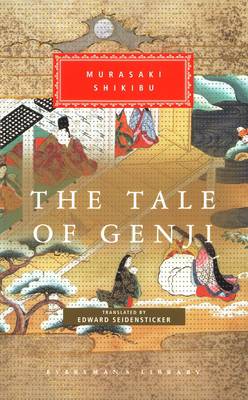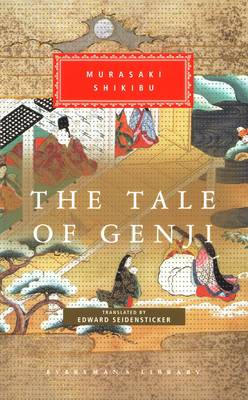
- Retrait gratuit dans votre magasin Club
- 7.000.000 titres dans notre catalogue
- Payer en toute sécurité
- Toujours un magasin près de chez vous
- Retrait gratuit dans votre magasin Club
- 7.000.0000 titres dans notre catalogue
- Payer en toute sécurité
- Toujours un magasin près de chez vous
Description
In the early eleventh century Murasaki Shikibu, a lady in the Heian court of Japan, wrote what many consider to be the world's first novel, more than three centuries before Chaucer. The Heian era (794--1185) is recognized as one of the very greatest periods in Japanese literature, and The Tale of Genji is not only the unquestioned prose masterpiece of that period but also the most lively and absorbing account we have of the intricate, exquisite, highly ordered court culture that made such a masterpiece possible.
Genji is the favorite son of the emperor but also a man of dangerously passionate impulses. In his highly refined world, where every dalliance is an act of political consequence, his shifting alliances and secret love affairs create great turmoil and very nearly destroy him.
Edward Seidensticker's translation of Lady Murasaki's splendid romance has been honored throughout the English-speaking world for its fluency, scholarly depth, and deep literary tact and sensitivity.
Spécifications
Parties prenantes
- Auteur(s) :
- Traducteur(s):
- Editeur:
Contenu
- Nombre de pages :
- 1224
- Langue:
- Anglais
- Collection :
Caractéristiques
- EAN:
- 9780679417385
- Date de parution :
- 11-01-93
- Format:
- Livre relié
- Format numérique:
- Genaaid
- Dimensions :
- 129 mm x 214 mm
- Poids :
- 1093 g

Les avis
Nous publions uniquement les avis qui respectent les conditions requises. Consultez nos conditions pour les avis.






